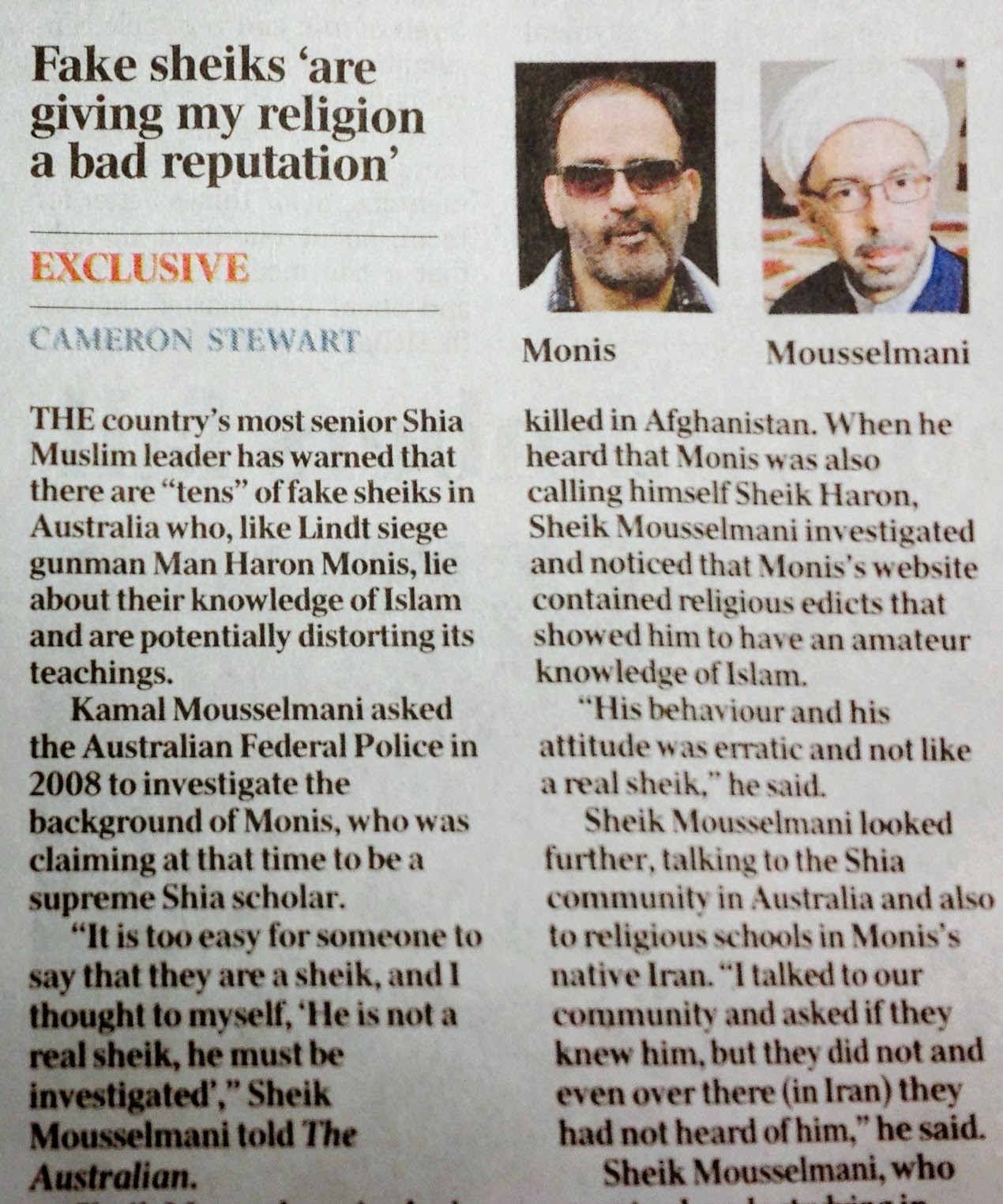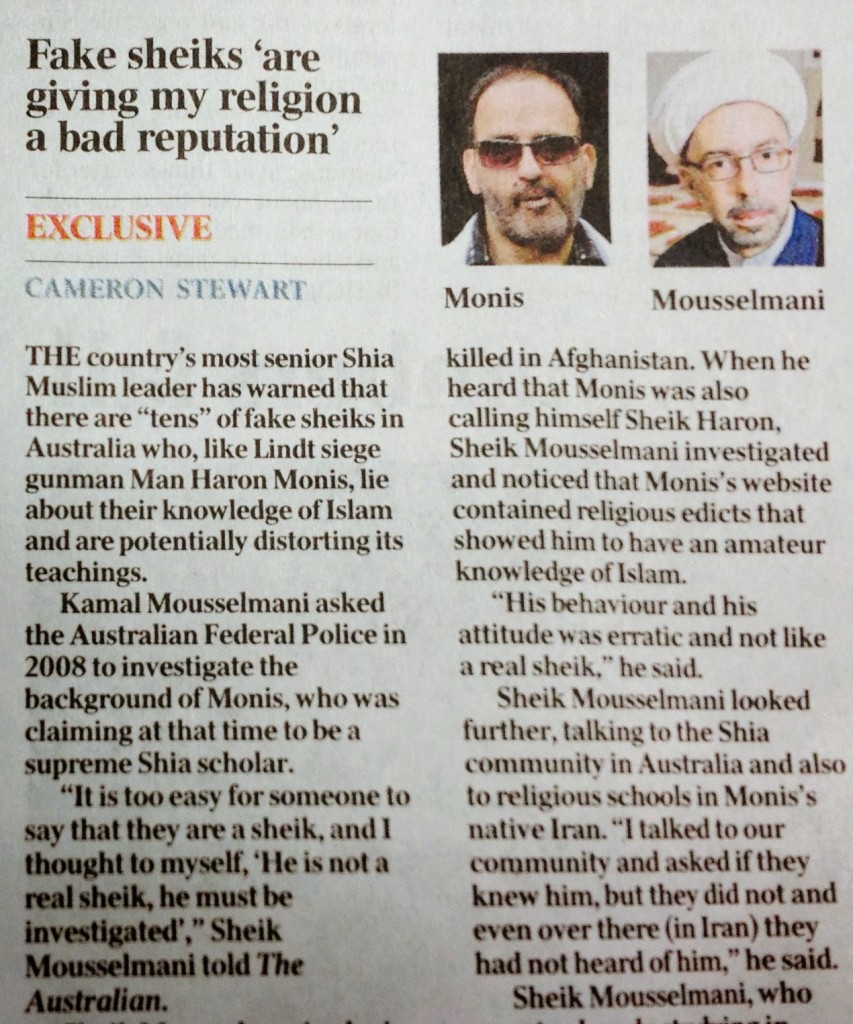I’ve just read that a Muslim cleric — the aptly-named Kamal Mousselmani — has denounced “fake sheiks” in the wake of the Sydney siege. He thinks it’s too easy to call oneself a religious authority. Fancy that. He comments on the Sydney hostage-taker who claimed to be a religious authority, and says, essentially, “He wasn’t a proper one.”
More and more, I’ve been hearing moderate Muslims say that fundamentalist Muslims or extremist Muslims are “un-Islamic”. Sometimes they go full Scotsman: “That’s not real Islam.”
On one level, I’m glad to hear that Muslims are denouncing violence. That’s very positive. This needs to happen — not just in Western countries, but everywhere — for human survival on Earth to continue. And I stand with Muslims who are my friends, co-workers, and students, even as I find their religion to be just as nonsensical as all other religions.
But for a Muslim to flatly disclaim other versions of Islam as “fake” or “not Islam” is disingenuous. What makes this imam so sure that his moderate reading of Islam is the right one, and fundamentalists have it wrong? The fundamentalists can quote scriptures in their defence, just as the moderates can; everyone picks their favourite cherries. This is religion we’re talking about, and one of the things about religion is that it doesn’t offer a good way of telling who’s doing it right and who’s doing it wrong.
See, with science, reality is the court of final appeal. But religion doesn’t get its data or practices from reality, so reality can’t be appealed to when there’s a schism. All the parties can do is excommunicate each other and move on. That’s what we’re seeing here with this disavowal. But moderates can’t just say “That’s not Islam” and then keep going as if the extremists don’t exist. The book that they think is so wonderful and peaceful is the same book that the encouraged the extremists to commit violence in the first place. The good guys? That’s Islam. The bad guys? That’s Islam, too.
This kind of denunciation is also self-serving. A religious leader denounced his competition as fake? Gee, never seen that before. In part, this imam is trying to make sure that the image problem generated from Islamic-motivated violence doesn’t affect him. I get why he’s doing it, but it’s ass-coverage all the same. It also prevents that pesky need for any self-analysis. You don’t have to grapple with the problematic part of your faith or history if you just wall it off and say it doesn’t apply to you. How much better it would be to say, “There are things in the Quran and the Hadith that do encourage violence, and we need to be aware of this to make sure we don’t go down that road.”
I don’t want to come down too hard on someone for not wording things exactly the right way when they’re saying the right thing. I’m encouraged that many Muslims are disavowing violence. (Welcome to the 19th century.) I hope they succeed in reining in the worst behaviours of the Muslims who are — whether they like it or not — their co-religionists. But by saying “That’s not Islam”, moderate Muslims are copping out, not stepping up.


Recent Comments